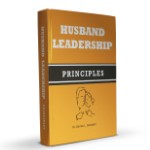How can couples use disagreements to enhance the happiness in a marriage?
In a recent article, a marriage counselor provides advice designed to produce happiness in a marriage. A truly happy marriage is attainable with the appropriate leadership principles. Husbands and wives can play a primary role in ensuring happiness in their marriage by utilizing a leadership reflective process designed to limit the impact of disagreements.
According to the article, Marriage-Improvement Tips for Young Couples, arguments between the young husband and wife can impede the progress in a marriage, leaving the couple with feelings of confusion and helplessness. The author, Bob Strauss, believes that couples should refrain from attacking one another and instead provided details regarding their expectations.
Jane attacked William for their differences in expectations. According to Strauss, “rather than attacking him, Jane should express how she feels and offer him an opportunity to make a more thoughtful response. William expresses regret and suggests that she should have been more explicit about her expectations. He explains that anniversaries in his family were not a big deal. This couple needed to learn how to defuse the situation, rather than escalate an argument.”
Strauss has made an error on several fronts. First, couples must understand that they come to the marriage with different expectations. When these expectations clash their is going to be a disagreement. It impossible to be in a marriage and not expect disagreements. What is more important is how each person in the marriage handles their anger regarding the disagreement. Strauss has also failed to expose that the characteristics associated with their disagreement is associated with a dysfunctional organization.
A dysfunctional organization begins with each individual use of defense mechanisms for coping. Defense mechanisms are the unwritten rules an individual learns and utilizes to effectively deal with circumstances that are upsetting, embarrassing, or threatening.
In this case Jane learned that celebrating an anniversary involved an anniversary card, flowers, and an expensive dinner. William learned that anniversaries were no big deal and responded to their first anniversary by taking Jane to a modest bistro and providing her with, in her opinion, an “ordinary and unmemorable card”. So both Jane and William learned that in order to ensure that there was no embarrassment at anniversary time different values. As they watched their parents operate it became the skilled incompetence stage for both of them.
Skilled incompetence, which is the outcome of the defense mechanisms we have internalized. When the defensive behaviors we’ve learned are transformed into a learned behavior, that behavior becomes a skill – albeit an incompetent skill – that we consider necessary in order to deal with issues that are embarrassing, threatening, or upsetting. A skill that is learned from the regular application of a defense mechanism has a high degree of incompetence embedded within it, because we are unaware of how this skill will impact our future.
Skilled incompetence transforms into a defensive routine. Defensive routines are the third level. When the skilled incompetence is automatically exhibited at all times, the behavior is now a defensive routine. This became the skill that both Jane and William decided to exhibit in regards to celebrating wedding anniversaries.
Defensive routines lead to fancy footwork. Fancy footwork happens when individuals try to deny the behavioral inconsistencies they exhibit, or else they place blame on other people, which results in distancing themselves from taking responsibility for their behavioral inconsistencies. Jane attacked William instead of realizing that both of them were correct with the way that they thought was appropriate for celebrating wedding anniversaries.
Fancy footwork leads to organizational malaise. During this phase the individuals in the organization will seek to find fault within the organization rather than accept responsibility for their actions and correct their behavior accordingly. The individual continues the process by accentuating the negative and deemphasizing the positive in an effort to cover up their actions. The organizational malaise is further exacerbated by a refusal of one or all the members to discuss their area of responsibility.
Jane was so angry with William that William retreated into silence. This is the way that he always responded to Jane’s anger. Now both Jane and William had hurt feelings and anger that resulted in disappointment and emotional isolation.
William attempted to explain to Jane that he was regretful and recommended that she become more direct with her expectations. The suggestion is problematic because it is after the fact and he has shifted the blame on Jane instead of evaluating how he contributed to the problem by celebrating anniversaries different from his wife.
What tool can husbands and wives use to increase the happiness in a marriage?
After the disagreement, William and Jane should have retrieved a blank piece of paper and reclined to a private place in the home and implemented the following steps:
1) Draw a line down the middle of the paper
2) On the left column, write down the conversation that he has with his wife Jane.
3) On the right side, write down what he was thinking for each statement that was made by him and his wife.
4) Reflect on his thinking and determine the point where he had a opportunity to ensure that the conversation remained positive.
Husbands can use this reflective process to ensure that they enhance happiness in their marriage.
Related Articles
Getting Married Is Not an Accomplishment, But Finding Happiness (In Any Form) Is
Marriage brings Katie Piper happiness and a new name without the painful memories
10 Signs You Have A Solid Foundation For A Marriage
In Christ,
Dr. Derrick and Mrs. Sheila Campbell
PO Box 4707
Cherry Hill, NJ 08012
(856) 566-3267
www.advancedmarriagetraining.com
Published books – Leading Your Marriage into the Promised Land
-Leading Your Marriage into the Promised Land (Workbook for husbands & Wives)
– Advanced Marriage Training for Singles


– Husband Leadership Principles

“I was blessed by the love and sensitivity that you and your wife showed during the presentation”.
Bishop Joseph P. Ravenell
Samaritan Baptist Church
Trenton, NJ
“I would highly recommend you to any church or organization desiring to provide their people with timely marital wisdom and practical application skills”.
Dr. James E. Woods, II
El Shaddia Christian Assembly
Philadelphia, PA

